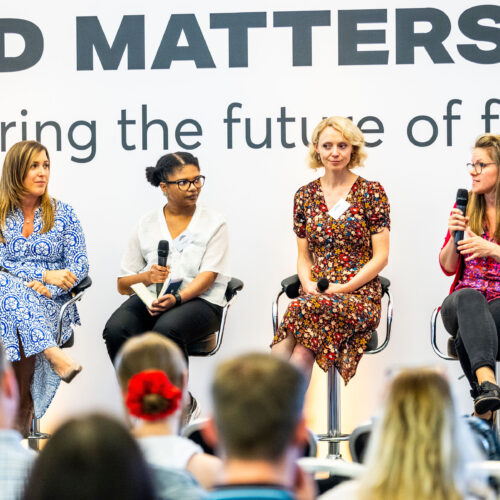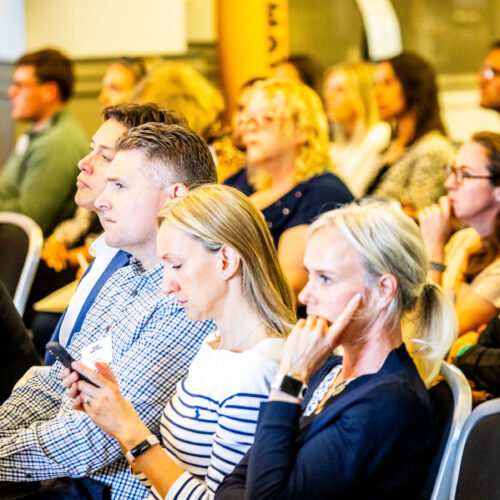When it comes to fibre, the fact is we are not getting enough of it.
Across most of the Western world, there is a lack of adequate fibre in our diets and that is contributing to health problems.
In the UK, the Government says we are consuming an average of 20 grams per day, but we should be consuming 30 grams. And it is similar around the world.
But why is fibre lacking in so many countries, across different cultures and diets? And why does it matter?
In this episode of the Food Matters Live podcast, made in partnership with Puratos, we take a look at the innovations that are out there in the food industry, helping us to increase our fibre intake.
There used to be a view that fibre did not really do much, that our bodies could not digest it and it just sailed through.
Thankfully, because of a wealth of scientific research, that view has been comprehensively debunked and we are learning even more about its benefits.
Fibre is crucial to maintaining our health, in particular a healthy digestive system.
Adequate fibre intake is associated with good health, and a lack of fibre is a risk factor for a number of diseases, including heart disease, diabetes, and colon cancer.
A global study in 2017 estimated that 100,000 deaths per year can be linked to poor fibre intake.
All of which leads to the question: How can we get more fibre into our diets?
Puratos
Puratos’ journey started in Belgium in 1919, and has evolved from a father-and-son start-up to a successful international business.
The company is now in 81 countries to date and has 93 innovation centres, offering a full range of cutting-edge services and the best quality ingredients to customers in bakery, patisserie and chocolate.
Innovation and people have always been key motivators for Puratos, whether that is working with artisans, retailers or food-service enterprises of any size, its focus is on ‘Food Innovation for Good’.
This is evident within the Happy Gut bakery products range, which includes specific types of fibres to support consumers’ gut health.
Learn more about how Puratos supports customer success.
James Slater, Director of Research and Development for Puratos UK
James has been in food science roles for over 20 years and has an educational background in biochemistry and biology.
His fascination and curiosity in the blend of craft and science in bakery led him to an R&D role at Puratos and he’s now an expert in ingredients and how they work, sensory science and food manufacturing processes.
At Puratos UK one of his focuses is the technical and biological function of fibre – a simple ingredient that can do so much good for mind, body and soul.
Dr Raluca Florea, Gut Health Lead, Puratos
Dr Florea’s role combines the science of the gut with the art of baking to develop bakery solutions that can aid human health and wellbeing.
She studies the relationship between the gut microbiome and diet and how food components can modulate the gut microbiota to promote gut health.
Raluca obtained her PhD degree in Bioengineering Sciences at the Free University of Brussels, Belgium.
Her PhD research was focused on engineering specialized molecules in bacterial microorganisms that could be used as therapeutic tools to treat infections.
After her academic career Raluca worked as an Innovation Manager, driving the developmental pipeline of dietary supplements within the digestive health category.
Phil Metcalfe, Managing Director Biopower Technologies Limited
Phil is one of the founders of Biopower, he is a chartered engineer and has previously worked as an Engineer Officer in the Royal Navy, investment banking, and has setup a series of companies focused on alternative energy, climate change and sustainability.
The company has a unique milling technology (RESS) for materials that have a wide range of applications from renewable energy through to food ingredients.
Phil has been focused on how food production side streams can be retained in the food industry as long shelf-life stable ingredients for industrial food manufacturing.
Form and function have become critical to enabling the materials to be incorporated in staple foods to address the fibre shortage in the UK diet.
Phil focuses on how simple nudge nutrition approaches using sustainable ingredients can be used to enhance health and well-being.







